If you own a pool long enough, you are going to face the daunting task of cloudy water. Murky water can be caused by dead algae, adding the wrong chemicals, or adding the right chemicals (but just in the wrong order). No matter how the murkiness got there, it can be a pain to deal with. The good news is that it doesn’t have to be.
You can use a range of goods to clear up a cloudy pool, using ones you probably already have on hand to specialty products. These are my top 5 products for clearing up a cloudy pool.
Clarifier
- Easy to use / passive cleaning
- Can be a regular part of your water chemistry regime (an apple a day)
- Because of its more passive mechanism, it takes a while to work
- More of a finishing touch than a heavy lifter
A clarifier is a coagulating agent that clumps small particles like silt, sand, and dead algae into larger chunks to make it easier pickings for your filter. Of the items on this list, I believe clarifier to be the mildest and it would not be out of place if you added it as a regular part of your water chemistry routine.
This family of pool chemicals is good for that last finishing touch to make your pool sparkle before a party. I like to give my pool a booster dose of clarifier every couple of weeks.
Clarifiers would be ideal for light haziness. For example, you had the beginnings of algae bloom, you were able to snuff out. But due to its relative mildness, clarifiers may take a couple of days to complete a treatment.
Flocculant (Alum)
- Gets rid of everything.
- May lower phosphates
- Fast-acting
- Not ideal for cartridge systems without proper drainage
Flocculants (also called Alum) are the big guns when it comes to getting stuff you don’t want in your water out of it. This chemical family is super effective at clumping and sinking debris, so good they are used in water treatment plants.
Algae’s favorite food, phosphates, are prevalent in lawn treatments and some pool chemicals. Either by rain runoff or swimmers tracking it into the pool, you will eventually have to purge these particulates. Phosphates are just big enough for a floc to latch onto and collect.
A pool owner can complete a treatment cycle in just a few hours, with only a little vacuuming labor to finish the job. From the initial dose to vacuuming to waste, you can finish up treatment in an afternoon, unlike clarifier, which can take a couple of days and multiple doses for best results.
With great power also comes the possibility of damage. Flocculant is a great coagulant, but that also means if it gets in your filter, you will have a mess on your hands. That’s why floc is ideal for sand or DE filters, which usually have a “RECIRCULATE” function on their valve to bypass the filter media. Unfortunately, systems built around a cartridge filter generally do not have a bypass or a viable way of purging water to waste.
Non-chlorine shock
- Quick and easy
- Doesn’t halt swimming
- Gets rid of the smell as well as cloudiness
- Raises pH (pH level = 9)
Non-chlorine shock is an oxidizer, not a coagulant like our first two products; oxidizing a material essentially means you’ve broken it down to its essential pieces. It is the real version of the elemental gauntlet; fortunately for us, it is a lot safer than that. After dosing your pool with non-chlorine shock, swimmers can hop in a half-hour after treatment.
That pungent chlorine smell you get around a pool means there are chloramines present. CHloramines is a fancy term for used up or discharged chlorine. Non-chlorine shock breaks down these molecules as well as cloudiness to make your water sparkle. Unlike regular old chlorine shock, a non-chlorine shock is not pH neutral. If you have to add a couple of doses to your pool, be prepared with some pH Down.
Enzyme Cleaner (Pool First Aid)
- Relatively safe and nontoxic
- More expensive
- Not a substitute for chlorine
Safe for your water and your swimmers, this family of cleaners are a specialized chemical to help clear up cloudy pools but break down body oils, lotions, and organic materials in your water.
Pool First Aid is more expensive than your typical clarifier I would not use this as a regular addition to my water chemistry regime. This is an enzyme cleaner, but it is not a substitute for chlorine or other sanitation chemicals.
Filter Enhancers (Jack’s Magic Filter Fiber Stuff)
- Not a chemical
- Can be used as enhancers onsen and cartridge filters or can replace Diatomaceous earth completely in DE filters
- Won’t correct chemical imbalances
- Expensive
Sometimes cloudiness is due to the inefficiency of your filter. Filter enhancers like perlite or cellulose fiber will boost a sand system’s micron rating from 20-30 microns down to 1-3 microns.
Jack’s Magic Fiber Stuff can be used as enhancers sand and cartridge filters or replace diatomaceous searching completely in a DE filter. and cartridge filters or can replace Diatomaceous earth completely in DE filters
Your filter could be the best thing ever built, but it will not do much good if there is no chlorine in your water. It is up to you to maintain proper water chemistry.
For you, DE users out there, don’t get too happy because this stuff is more expensive than your standard DE, 4-5 times more.
Honorable mention – Chlorine and all other mainstay sanitizing chemicals
Not to sound like I am accepting an award, but none of this would be possible without you. Chlorine and its brothers in arms, bromine, ozone, and baquacil, without you, every pool would be a murky green mess. Keep up the excellent work.
Do you have any cloudy pool cleaning tips?
We love hearing any new or inventive ways our readers have come across in their pool cleaning regime; and we’d love to hear from you. Please leave us a comment down below with any of your own hint, tip, or tricks.

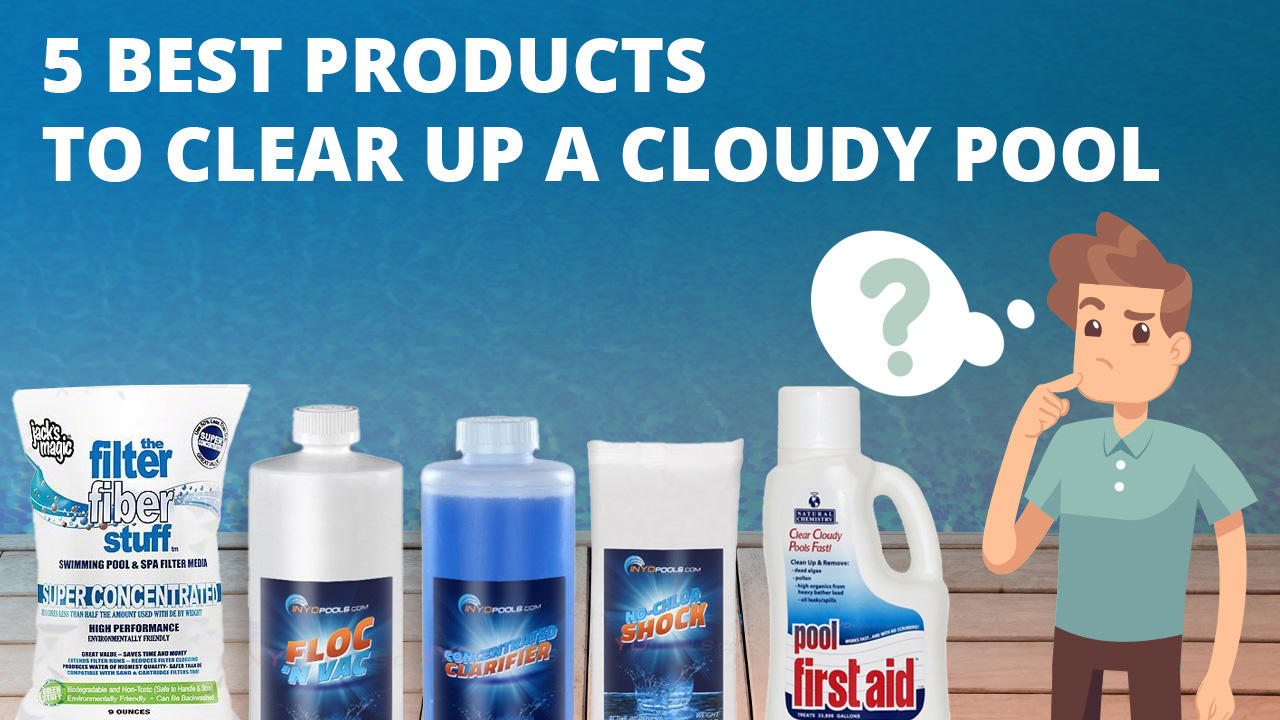



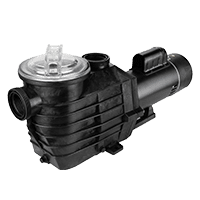
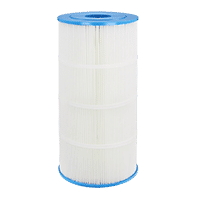
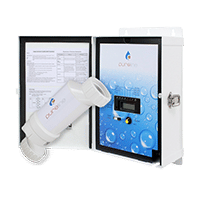
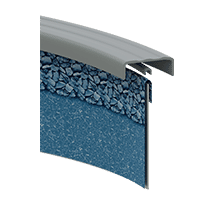

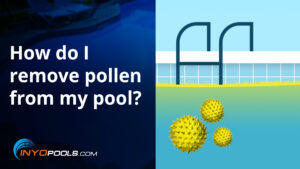
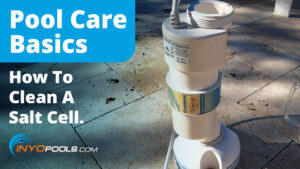
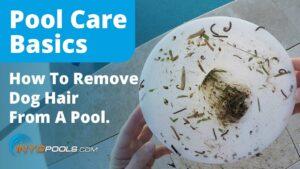
Leave a Reply